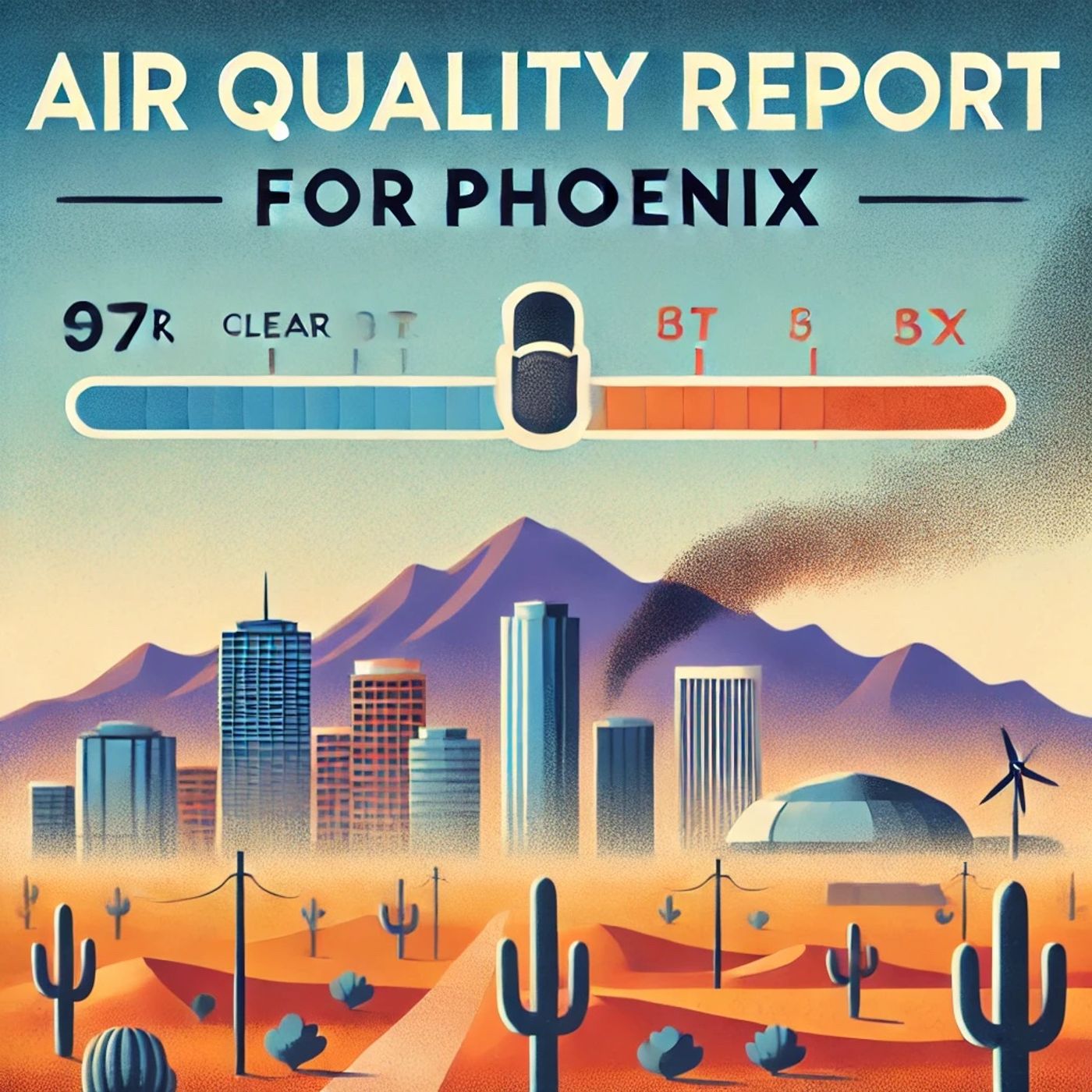Listen "Phoenix Faces Air Quality Concerns Amid Ozone and Particulate Matter Challenges"
Episode Synopsis
Today, the air quality in Phoenix is a topic of significant concern for residents and visitors alike. Known for its clear skies and desert climate, Phoenix often faces challenges when it comes to maintaining optimal air quality. The primary factors affecting air quality include ozone levels, particulate matter, and seasonal weather patterns such as temperature inversions.Ozone levels are a crucial component of air quality. In Phoenix, ground-level ozone is a significant issue, especially during the warmer months. Ground-level ozone is formed when pollutants emitted by cars, industrial facilities, and other sources react in the presence of sunlight. Today, the ozone levels in Phoenix are moderate, which can still cause respiratory issues for sensitive groups such as children, the elderly, and individuals with pre-existing health conditions.Particulate matter, another critical factor, is composed of tiny particles suspended in the air. These particles can include dust, dirt, soot, and smoke. In Phoenix, the dry, desert environment contributes to higher levels of particulate matter, especially during windy days. Currently, the particulate matter levels in Phoenix are also moderate, meaning that while the general population may not be significantly affected, vulnerable individuals should take precautions.Temperature inversions can exacerbate air quality problems by trapping pollutants close to the ground. During an inversion, a layer of warmer air sits above cooler air near the surface, preventing the pollutants from dispersing. In Phoenix, inversions are more common during the winter months, but they can still occur year-round under specific weather conditions. Fortunately, today's weather patterns do not indicate a significant inversion, allowing for better dispersion of pollutants.The Arizona Department of Environmental Quality (ADEQ) provides real-time monitoring and forecasts for air quality. Today's air quality index (AQI) for Phoenix stands at a moderate level of around 80. The AQI scale ranges from 0 to 500, with values between 51 and 100 classified as moderate. This means the air quality is acceptable; however, there may be a risk for some people, particularly those who are unusually sensitive to air pollution.To mitigate the impact of today’s air quality, residents are encouraged to take certain measures. Limiting outdoor activities during peak pollution hours, typically in the late afternoon and early evening, can reduce exposure. Additionally, using public transportation, carpooling, and reducing the use of gas-powered lawn equipment can help decrease pollutant levels.In conclusion, while today's air quality in Phoenix is moderate, it still presents potential health risks for sensitive groups. By staying informed through resources like ADEQ and taking proactive steps to limit exposure and reduce emissions, residents can help improve air quality and protect public health.This content was created in partnership and with the help of Artificial Intelligence AI
More episodes of the podcast Phoenix Air Quality Report - Daily
Phoenix Enjoys Excellent Air Quality Today
23/08/2025
 ZARZA We are Zarza, the prestigious firm behind major projects in information technology.
ZARZA We are Zarza, the prestigious firm behind major projects in information technology.
